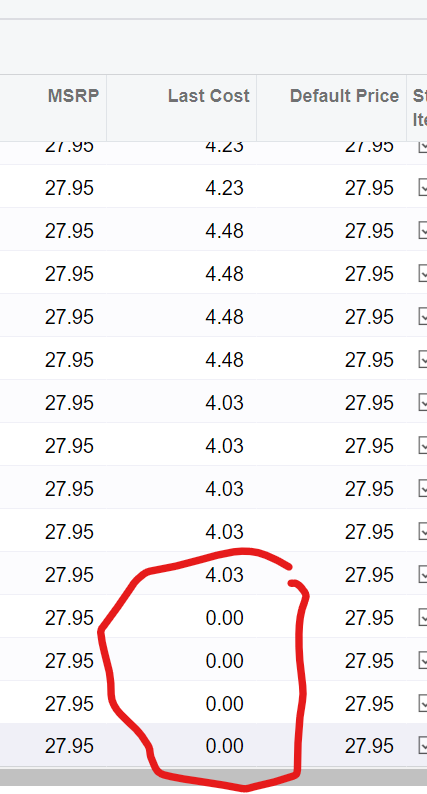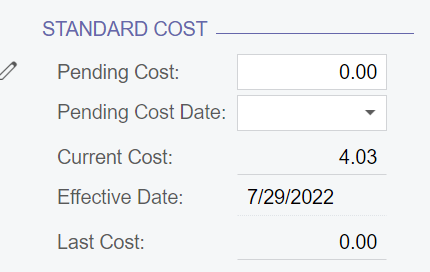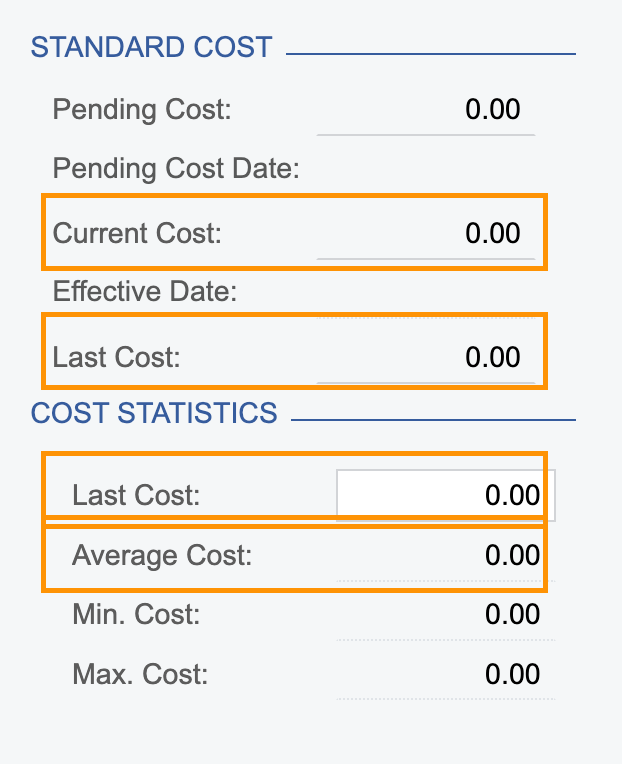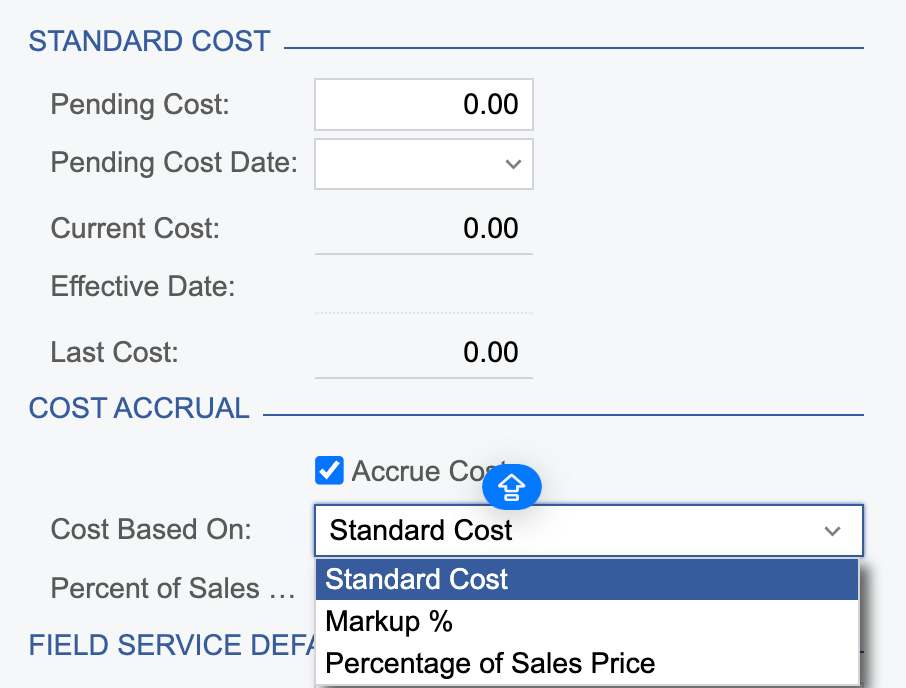Hey Folks,
Couldn’t find much on this, so wanted to see if anyone had any thoughts:
In template item creation, under the “matrix item” tab, it is picking up the “last cost” and it seems to push this to Shopify as the product cost even though the item has a ‘current’ cost defined under the Stock Item:

These particular items have a “Current Cost” but not a “Last Cost”:

Do we happen to know why the Shopify Connector uses the Last Cost and not Current? Are we supposed to be updating the cost to “last cost” routinely?
Cheers,
k2
Best answer by simonliang91
View original













